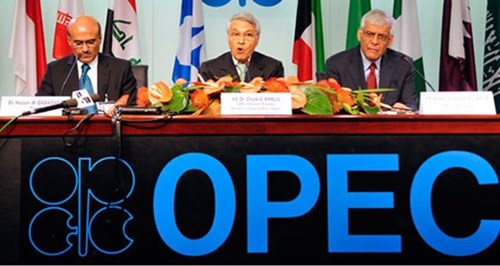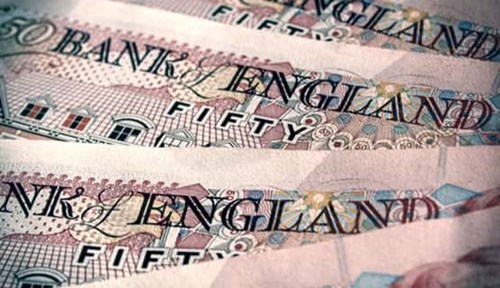Week Ahead
Plan your strategies for the trading week ahead with key insights from our team.
This is LCG’s look ahead to the week beginning June 18th. The video edition will return next week.
We discuss the OPEC semi-annual meeting, a forum held by the ECB featuring prominent central bankers, the Eurogroup meetings and the Bank of England rate decision. We will also rundown the key earnings and economic data for the week.
Earnings
There are some big results this week hidden among slim pickings for corporate earnings. Ferguson, Jefferies, AXA Equitable, Oracle and FedEx release quarterly results on Tuesday. Micron Technology release Q3 numbers afterhours on Wednesday. Dixons Carphone release full-year results while Kroger and Red Hat announce quarterly earnings on Thursday.
Economic Calendar
Moving onto the economic calendar. On Monday it’s the first day of the week-long ECB forum on Central Banking in Sintra Portugal where Mario Draghi gives a speech after markets close.
Draghi speaks again on Tuesday then on Wednesday there is a panel discussion with four prominent central bankers, the RBA’s Philip Lowe, BOJ’s Kuroda, ECB’s Draghi and the Fed’s Powell.
On Thursday we start with New Zealand GDP then there is the Swiss National Bank (SNB) monetary policy decision, the Eurogroup meetings start, OPEC starts its two-day meeting and the Bank of England makes its latest UK monetary policy decision.
The OPEC meetings conclude on Friday and we round off the week with Canada retail sales and Canada CPI.
OPEC
The semi-annual meeting between OPEC and non-OPEC countries, notably Russia will take place on Friday June 22nd. The meetings is setting up as a standoff. It will be Russia and Saudi Arabia vs. Iran, Iraq and Venezuela.
The recent rally in prices and pressure from the US President Donald Trump is tempting the Saudis and Russians to end the deal struck in November 2016 to curb output. The two nations would like to see production rise again to take advantage of the higher oil prices and defend market share against the US. The two countries would also like to appease the US President for political reasons. Donald Trump does not want high prices at the pump to dampen the impact of his tax cuts in US economic growth. The other nations within OPEC want to ensure the higher oil price is here to stay because of their higher cost of production. Raising supply, unless it is offset by higher demand, necessarily means a lower oil price.
The oil price has pulled back in the lead-up to the meeting, but the broader trend is still higher. OPEC is not the only force driving the oil price; geopolitical uncertainty in the Middle East and the future of the Iran nuclear deal are still playing a role. Still, a decision to raise production should be, at least over the short term, a negative for oil prices.
ECB Forum
The forum will be a chance for central bankers from the ECB and from around the world to explain their plan for ending the extraordinary monetary stimulus that has been in place since the financial crisis. Last week the ECB and the Fed made two important shifts in that direction.
The ECB made the big decision to end its asset purchases in December. Although it did soften the message to markets by signalling rates will not rise until the second half of 2019. Meanwhile the Federal Reserve is ploughing ahead with four rate rises in 2018. In 2019, the Fed will have a press conference at every meeting, giving them room to raise rates at a faster pace if needed.
Eurogroup
Political uncertainty – especially in Italy, but also in Spain and Germany has been on the rise in the second quarter of 2018. The central topic of these Eurogroup meetings will return to the old favourite, plans for the Greek bailout.
The June 21 meeting could be significant for the financial future of Athens. How to use approx. €40 billion leftover from the €86 billion Eurozone-funded bailout programme that is set to expire on August 20 will be a key question that needs answering.

Bank of England
Under the shadow of Brexit and an arguably ‘unreliable’ Governor, Bank of England policy has become the least predictable. Still, that does not have to be a bad thing. GBPUSD has been on a rapid decline over the past two months, offering an excellent market for trend-followers. Likewise, the Sterling-weakness saw the FTSE 100 index hit record highs in May.
There is no press conference so move on rates is expected. Whether trends for GBPUSD and the FTSE 100 resume could rest on the minutes and statement released. The next opportunity for the Bank of England to act would probably be the August meeting. Ideally, the MPC would start setting up the market for that decision with confidence noises in June. Hawkish tones should send Sterling higher but it would be understandable if the market was sceptical and gains were capped. Even if Mark Carney and co. signal an August rate hike, who is to say they will not bottle it again? (like in May).
Thank you very much for reading, good luck trading this week. Please follow LCG on YouTube and social media for all our latest analysis.
The information and comments provided herein under no circumstances are to be considered an offer or solicitation to invest and nothing herein should be construed as investment advice. The information provided is believed to be accurate at the date the information is produced. Losses can exceed deposits.
 Change Language ▼
Change Language ▼
